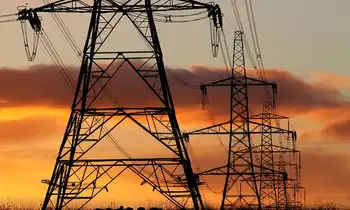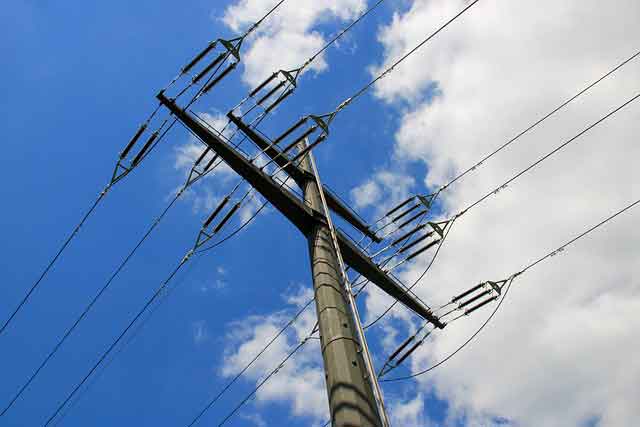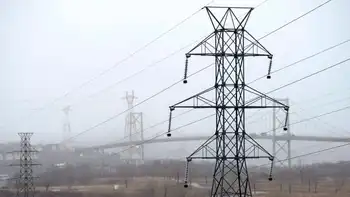Staying power of EVs questioned
By Reuters
NFPA 70e Training - Arc Flash
Our customized live online or in‑person group training can be delivered to your staff at your location.

- Live Online
- 6 hours Instructor-led
- Group Training Available
The attention rankles with some in the biofuel industry, whose own hype was abruptly halted by a glut of production in 2007, subsequent bankruptcies and a fall from grace after a link was drawn — which they dispute — between biofuels and spiraling food prices and rising hunger.
Gasoline may beat off both alternatives for decades as the leastworst option, with wider adoption of more efficient conventional cars helping to curb carbon emissions and oil dependence.
The uncertainty is striking for a $56 trillion global auto and fuel supply market, where there is agreement only that the number of cars will keep rising, perhaps doubling to 2 billion by 2050.
The momentum is with electricity, following an oil price spike in 2008, lavish government incentives and a crippling downturn across the wider car industry. The United States recently finalized fuel efficiency standards, following similar rules in Europe.
Green cars grabbed center stage at auto shows this year in New York, Geneva and Detroit, including allbattery cars, hybrid varieties that switch between electric and gasoline, and small, more fuelefficient conventional cars.
But battery electric vehicles EVs are expensive.
Mitsubishi Motors and Nissan Motor Co announced prices for their iMiEV and Leaf batteryonly electric cars, in production already or about to debut, at 3.98 million yen US $42,520 and 3.76 million yen respectively before state subsidies, several times the cost of equivalent cars.
Reality bites with driving ranges of about 100 miles, far less than for a petrol car which U.S. customers expect to exceed 300 miles.
And electric cars have to contend with the multibilliondollar cost of a new charging infrastructure, although they benefit from running costs at about a quarter of gasoline at todays prices, according to electric car advocates.
The electric vehicle sector certainly has momentum, but its questionable whether it has the legs for the longer term, at least at the moment, and whether it has enough scale, said Peter Wells at Cardiff Universitys Center for Automotive Industry Research, who expected big cost reductions.
Success depends on drivers accepting limitations on range and on recharging time, which takes several hours, said Pierre Gaudillat, research and development manager at the UKfunded Carbon Trust.
I dont see any major breakthrough on the horizon, he said. Customers may have to compromise on what they expect from a car, perhaps tailored for commuting, and from ownership, for example buying the car but renting the expensive battery.
Hybrid gasolineelectric cars overcome the range problem but are still pricey because of their complexity and battery costs.
Sales of hybridelectric vehicles are expected to reach about 1.3 percent of an estimated 67 million light vehicle sales this year, according to the information company J.D. Power and Associates.
Batterypowered, all electric vehicles EV will only amount to about 20,000 units, but by 2015 could reach a 0.3 percent market share.
The International Energy Agency says EV and hybrids must reach at least 7 percent of global car sales by 2020 to hit targets to avoid more dangerous climate change.
Global biofuel production, meanwhile, will grow 16 percent in 2010, according to the Global Renewable Fuels Alliance.
Gasoline may continue to dominate both, especially if oil price rises are muted by efficiency drives. Automakers are already making smaller engines more powerful and transmissions more efficient, while the carbon emissions savings of both electric and biofuels are disputed.
I think oilbased transport fuels have such a competitive advantage and dominance that you need a compelling argument to move to something different, and the case has not been made for what that is, said Chris Mottershead, vice principal of research and innovation at Kings College London, and former head of climate change at oil major BP.
Technologies to replace gasoline enthuse investors, even those doubtful of any climate threat, given the vulnerability of the United States and others to oil prices. The United States imports over half the petroleum it consumes.
HSBC is one backer of electric, investing $125 million in January in Better Place, a Californiabased company that wants to build charging networks and lease batteries to customers.
HSBC climate change analyst Nick Robins stressed a wider benefit, or positive spillover, from electric cars which he contrasted with the negative wider impact of biofuels. Car batteries could help balance electric grids that are increasingly dependent on intermittent wind, by recharging at night, Robins said.
Biofuels are made from sugar, corn and oil seeds now, and perhaps in the future from grass, crop waste and wood. Rising biofuel demand has stoked prices of feedstocks such as corn, but may only have played a small part in the 2008 food price spike, analysts say.
The oil major Royal Dutch Shell is a big backer of ethanol, striking a deal in February with Brazils Cosan to create a $21 billion a year ethanol joint venture.
Ethanol made from Brazils sugar cane is economic at an oil price of $4050 a barrel, compared with $80 oil prices now. That has created an autos market in Brazil where most new cars are flexfuel, handling any blend of gasoline and ethanol, at no extra cost.











